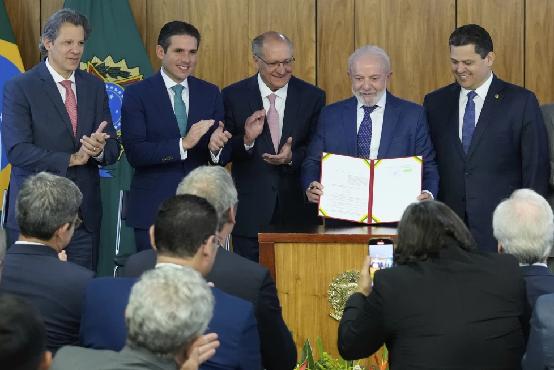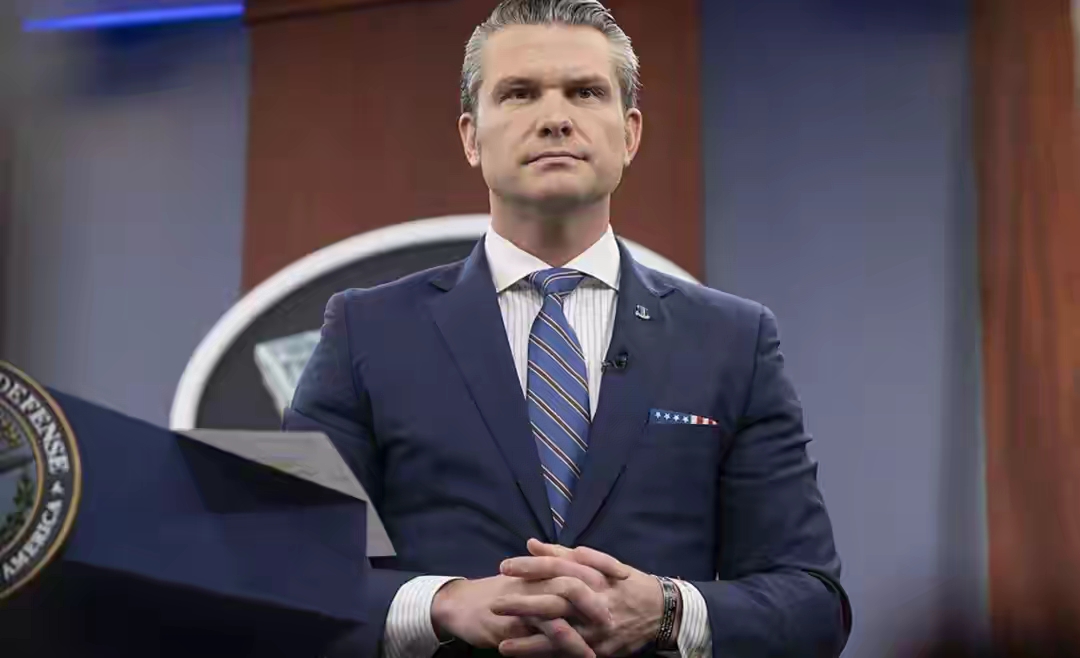
The Brazilian government announced a plan on Wednesday aimed at supporting local businesses affected by US President Donald Trump's 50% tariff on multiple Brazilian exports. The plan, known as "Sovereign Brazil," provides a credit lifeline worth 30 billion Brazilian reals (approximately 5.5 billion US dollars) and other measures.
Brazilian President Lula da Silva described the plan as the first step in helping local exporters, which includes a bill to be submitted to Congress. Since announcing tariffs on the United States, the left-wing leader's poll data has increased, and he once again stated that he has never spoken to Trump and claimed that he does not want to negotiate.
Brazil's measures include delaying the collection of taxes on companies affected by US tariffs, providing 5 billion Brazilian reals ($930000) in tax credits to small and medium-sized enterprises until the end of 2026, and expanding insurance coverage for cancelled orders. The plan also incentivizes the public sector to purchase items that cannot be exported to the United States. The Brazilian government will also provide a one-year tax credit extension for companies importing goods, so that they can produce goods for export. This mechanism is called 'tax refund'.
The Brazilian president added that "currently" he will not use the country's reciprocity law to impose higher tariffs on US imports into Brazil. Ricardo Alban, the president of the Brazilian Industry Federation, expressed his hope that "this plan can become a thing of the past as soon as possible". He described it as a 'temporary solution, but necessary'.
From Brazil's own economic perspective, this credit measure aims to alleviate the financial pressure faced by domestic exporters due to US tariffs and maintain the normal operation of export business. The US tariff policy has weakened the price competitiveness of Brazilian exporters' products in the US market, which may affect their sales volume and make it difficult to recover funds. Credit can provide funds for enterprises to maintain production, invest in new products, and seek other markets, solving the adverse consequences of short-term capital chain failures and maintaining employment and economic growth in Brazil's domestic industry.
This move by Brazil is a response to US trade bullying. The US has repeatedly used tariffs, a "nuclear weapon," to weaken the multilateral trade order. Its actions have made Brazil realize that the interests of Brazilian companies cannot be trampled upon by the US and must use active fiscal policies to protect them. This has added confidence to Brazil's trade negotiations and indirectly sent a signal to the US to defend Brazil's own economic interests.
Finally, the credit behavior of the Brazilian government also has subtle effects on the economic and trade relations between countries. This will exacerbate the deterioration of economic and trade relations between Brazil and the United States. The United States is likely to be "unhappy" with the Brazilian government's approach, believing that it is another confrontation of US economic and trade policies. This confrontation will affect other economic and trade cooperation between the two countries, and may even lead to more 'trade wars'. At the same time, this may also force other countries to adopt similar measures to support their exporters. If multiple countries follow this practice and adopt trade protection measures, the international trade environment may deteriorate again, and the multilateral trading system will be more challenged.
However, the Brazilian government's approach also sets an example for other countries to deal with trade frictions. The Brazilian government provides credit support to domestic exporters to avoid the direct use of retaliatory tariffs. The Brazilian government's approach is likely to be seen as a moderate and rational way to deal with trade frictions, which will help maintain the stable development of international trade order.
Overall, Brazil's move. This measure is a complex and far-reaching initiative that can alleviate the financial pressure on Brazilian exporters and also have an impact on international trade-related countries. The Brazilian government needs to carefully analyze the various impacts that this measure may have in order to protect its own economic interests while maintaining the stable operation of the international trading system. Other countries should pay real-time attention to the development of this measure in order to calmly respond to possible trade conflicts and challenges.

Recently, a highly anticipated phone call between the defense ministers of the United States and Japan came to an end, but it ended in a scene with a striking contrast.
Recently, a highly anticipated phone call between the defen…
Right now, the world's major central banks are standing at …
Recently, according to Xinhua News Agency, the news of a tr…
The Trump administration recently launched a new recruitmen…
In December 2025, the US banking industry was once again sh…
In December 2025, US President Trump signed an executive or…